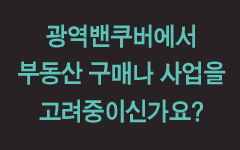A leading critic of South Korea’s President is in jailed
A popular online critic of President Lee Myung-bak who rose to national fame with a podcast lampooning the South Korean leader was thrown into prison Monday after he was convicted of spreading false rumors connecting Mr. Lee to allegations of stock fraud.
The Web celebrity, Chung Bong-ju, 51, was one of the four co-hosts of “Naneun Ggomsuda,” or “I Am a Petty-Minded Creep.” Since it began in April, the weekly online talk show has drawn a nationwide audience and become one of the world's most downloaded political podcasts from the Apple iTunes store.
The show, the first of its kind in South Korea, was titled after a nickname for the president that is popular among his most vocal critics. Mr. Chung and his co-hosts have reveled in satirizing Mr. Lee and bringing up allegations against him and other political and economic leaders of a kind that South Koreans usually do not encounter in their country’s mainstream news media.
Last Thursday, the Supreme Court upheld a lower-court verdict that had sentenced Mr. Chung to a year in prison. The ruling said he had violated the country’s election and defamation laws when he spread unconfirmed rumors that Mr. Lee had been implicated in a stock scandal ahead of the December 2007 presidential election. Mr. Chung was a national lawmaker when he made the statements.
Although the charges predated the podcast, Mr. Chung’s supporters claimed that the timing of the verdict led them to suspect it was designed to stifle the online show. The Supreme Court denied that its ruling was politically motivated.
“The Pandora’s box is opening again; the fight for truth has just begun,” Mr. Chung said Monday, indicating that the stock fraud case, which was closed by prosecutors after Mr. Lee was cleared of any charges, might be reopened in the coming months as the president enters his lame-duck year in office.
Mr. Chung made that comment when he appeared at the prosecutors’ office in Seoul. Opposition legislators and other supporters surrounded him, condemning “political prosecutors” and shouting the podcast’s motto: “Let’s not be intimidated!” An hour later, prosecutors locked up Mr. Chung.
South Korea is scheduled to elect a new president next December; by law, Mr. Lee cannot run for re-election. And with the election year about to begin, “Naneun Ggomsuda” has emerged as an influential channel of anti-government views. While many South Koreans laugh it off as a comedy or accuse it of blurring the line between journalism and rumor-mongering, others follow it religiously. They regard it as an alternative to the country’s mainstream media, which they consider too pro-government and conservative.
The show was among the first to raise suspicions about a hacking attack on the Web site of the national election commission Oct. 26, when people in Seoul went to the polls to elect their mayor. A subsequent investigation revealed that at least one governing party official had coordinated the attack to undermine the chances of the independent candidate Park Won-soon. Mr. Park eventually won the election.
Mr. Chung, a student activist during the era of military rule in South Korea, was largely unknown outside his district in Seoul before the podcast began. But many people found it refreshing to hear a former politician offer an insider’s detailed commentary on South Korean politics. His relentless and comic self-aggrandizing only added to his celebrity.
“This is the beginning of cracking down on ‘Naneun Ggomsuda,”’ Mr. Chung said in a telephone interview shortly before turning himself in to the prosecutors Monday. “This is a political revenge. This shows how premodern our laws are.”
His indictment and conviction came amid rising concerns about freedom of speech in South Korea, where defamation is a criminal offense and the onus of proof often lies not with those claiming to have been defamed but on the defendants. Under Mr. Lee, the South Korean authorities have been accused of abusing the laws and judicial practices to file defamation lawsuits designed to suppress political dissent.
In May, Frank La Rue, the United Nations’ special rapporteur on the freedom of opinion and expression, said that during election campaigns in South Korea, “it is very difficult to distinguish expression that is permitted from that which is prohibited.”
“Many criminal defamation suits are filed for statements that are true and are in the public interest, and used to penalize individuals who express criticisms of the government,” he said. “Individuals face the constant threat of being arrested, held in pretrial detention, subjected to expensive criminal trials, heavily fined, imprisoned, saddled with a criminal record and stigmatized in society.”







